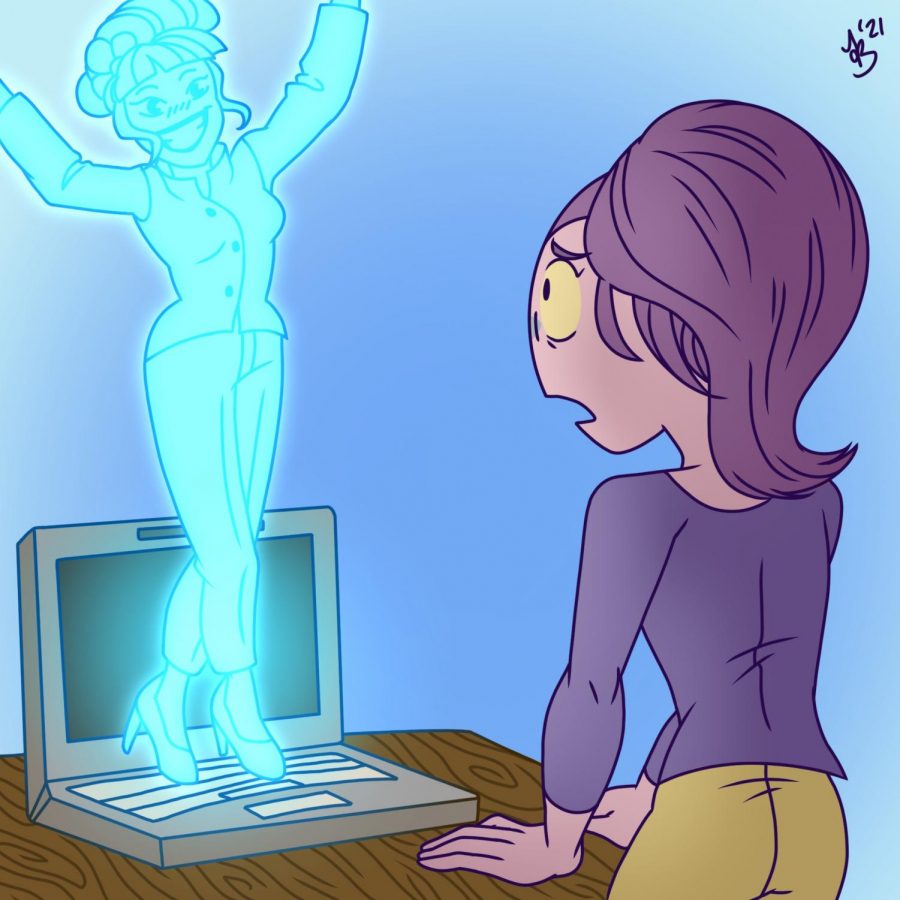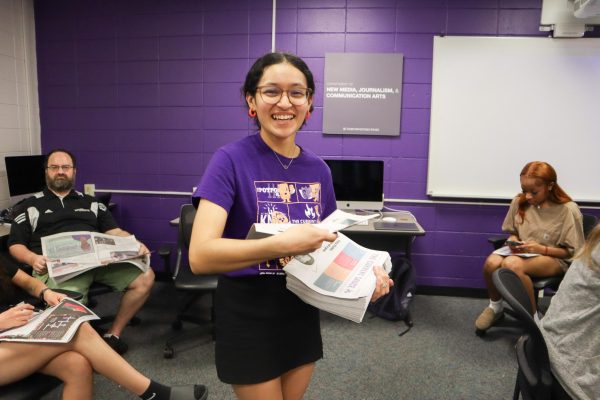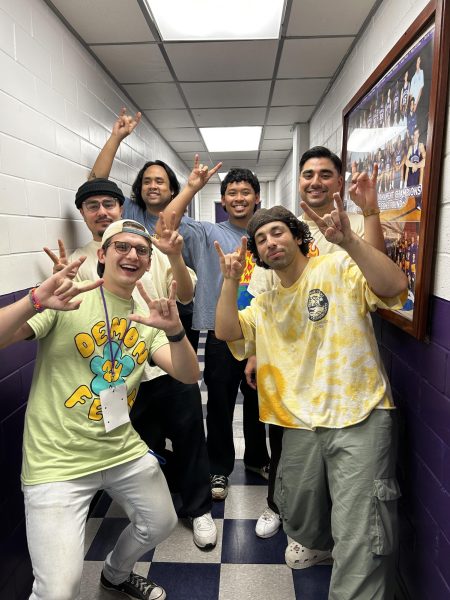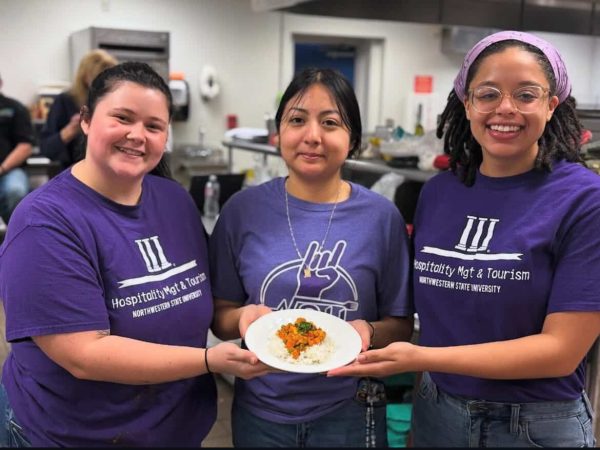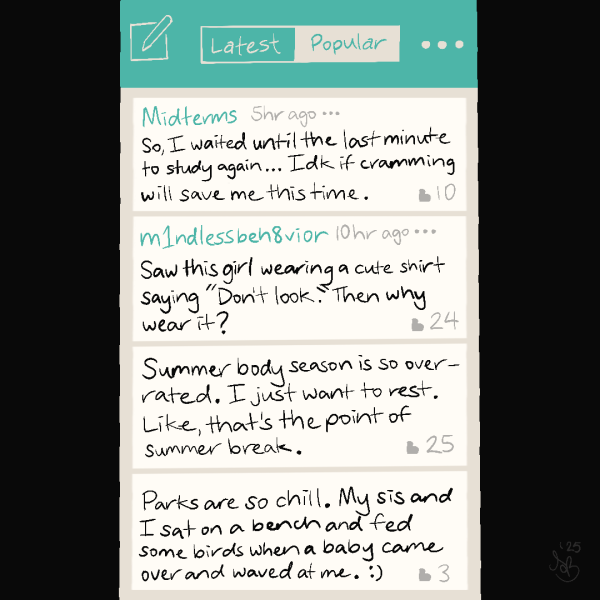My language learning journey: from English to Mandarin
I needed to start a new language with drive and pre-set ideas that would stay with me.
Opening a small book, I start at the beginning, a messy scribbled page awaits me. The events that led to me deciding to learn a new language were different from most.
Senior year of high school, January 2020, before the great vacation soon to occur in March of the same year, I began something new. That something needed to be challenging for my poor, bored and over-ambitious brain. I open my book.
For backstory, I have been watching anime for a very long time, but the Japanese language was too mainstream and expected. Similarly, I enjoyed Korean music and occasionally a drama or two, but the Korean language was newer to me and I did not feel learning the language would be a passion I could keep up.
I needed to start a new language with drive and pre-set ideas that would stay with me. Finally, I chose the hardest possible mainstream language to learn for an English native: Mandarin Chinese.
Now, time for a quick recap on the basic history of Chinese. Thanks to a quick Google search, Wikipedia has led me to some basic facts. Chinese is one of the oldest languages still spoken today.
China was also one of the earliest settlements of our known human existence, originating alongside the Huang He (Yellow River), China is regarded as one of the cradles of civilization, alongside other known civilizations such as Mesopotamia and the Indus River valley.
Fast forward thousands of years, the Republic of China, the China of the present day, was founded Oct. 1, 1949, by communist leader Mao Zedong. During this time, Mao Zedong declared that the many dialects (definition of dialect in my own words- same language, different accent, but to the point of the dialect being almost an entirely new language from its root) were to be joined under one.
He chose the most popular, the Beijing dialect. They educated the children with that dialect, soon named Mandarin Chinese, while also enforcing the simplified writing system of the Chinese we most often see today. Traditional writing is only used in special instances.
Moving onto the next white page in my metaphorical book, I decided first to find a new app to teach me because the Duolingo owl thoroughly haunts my nightmares and I wish not to see it ever again.
I found a specialized app called ChineseSkill. It focused heavily on vocabulary and improved basic vocabulary quickly. Eventually, though, I lost motivation six months into my journey, now having surpassed beginner’s intermediate, I decided in June of 2020 to fall back into the owl’s trap.
Duolingo helped me so much despite the constant fear, but I had to neglect vocabulary because of the way I study not being compatible with Duolingo. Despite this, my grammar improved with leaps and bounds, and I finally connected with the flow and patterns of the language.
Fast forward another six months and I’m finishing up midterms of freshman year in college and I haven’t done my language lessons in months. Christmas break leads me to reinstate my passion; I officially reach elementary intermediate level fluency. I could get by as a tourist in mainland China (or any other similarly speaking mandarin area) with basic levels of communication as well as get basic context in mandarin shows.
This is the point where I learned that picking up a language is much more than study and learning, it is about immersion. I couldn’t go to mainland China anytime soon though, so I forced myself to take recommendations from some of the most popular shows on the Asian media streaming service called Rakuten Viki and Tencent video.
I found many good dramas and often watched shows with no English translations or subtitles. Those were the hardest but I felt much more confident in my pronunciation and grammar than before. But I was lacking in basic vocabulary.
Jumping another six months forward, I surpass my year anniversary of beginning my language journey in June of 2021. This occasion finds me bored and lacking in passion once more, so I switch up my learning methods again.
It’s worth mentioning that I found some amazing Chinese artists and thoroughly listened to music in mandarin often. It helped. Very much.
I decided to join Busuu, a premium language learning app specialized in big languages. I joined Mandarin and quickly saw how professional and centered it was.
This app improved my vocabulary and grammar very fast at the same time, and I worked personally with native speakers who automatically pair with me, forcing me to care about sounding correct.
I made many mistakes, but it was fun to be corrected and learn why I was corrected. The community on Busuu was very good for me.
This now brings us to present-day August 2021, and I am occasionally popping into the app to do a quick lesson, but I am not focused. I will make more time eventually, but for now, I am content taking my time and strengthening what I already know.
I fully expect this journey to be years in the making. Hopefully, in three years, I will be confident enough to understand a whole TV show in Mandarin without help.
I want to look back on this article sometime in the future and be able to laugh at my younger self for having so many doubts about my ability. I have confidence in myself and my passion for the language, and my biggest promise to myself is to always keep this journey fun and enjoyable.
Whenever it becomes a chore, I will take a break until my passion is rekindled. This concludes this page of the story of my language learning journey. Now I will flip the page.
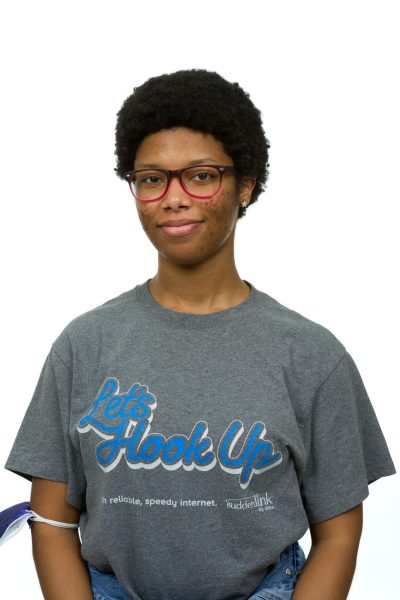
Stephani is a Fine and Graphic Arts Major with a Film Studies Minor. Though this year will be her second year as the Illustrator for The Current Sauce,...





















